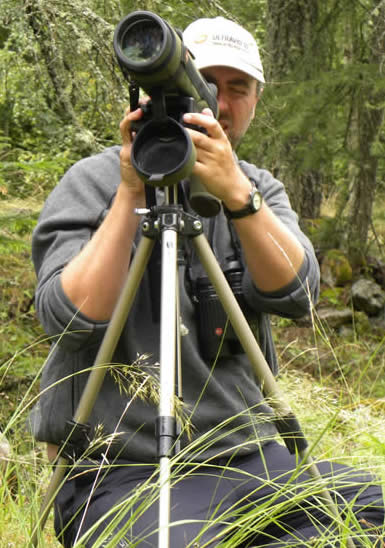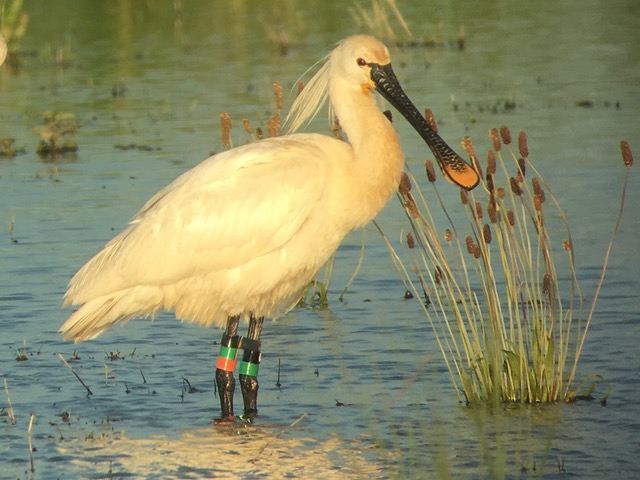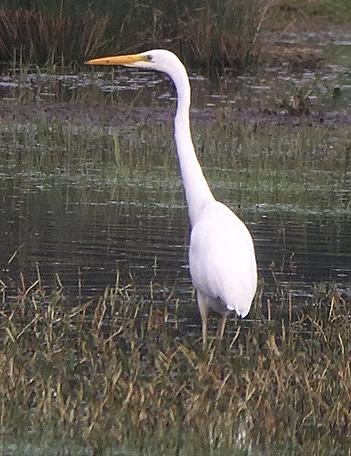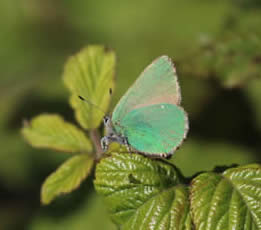North Norfolk break
17 – 21/22 May 2021*
Four days in the field on the North Norfolk Coast
* Suggested arrangement is to arrive on the Monday (17 May) with four days in the field 18-21 May. Participants might depart either late Friday (21/5) or Saturday morning (22 May). There is scope to do more or fewer days.
With hospitality allowed under the 'roadmap' to re-open from 17 May, this break is now open for bookings.
This web page is to give outline details of Honeyguide's 'north Norfolk break', originally planned for November 2020 but then cancelled because of coronavirus. The plan is that participants book the hotel themselves, and Honeyguide's Rob Lucking will be your nature guide for the stay. This break will be mainly focussed on birdwatching, given the area and Rob's knowledge.
May is the month for visiting Norfolk. Given the right weather conditions, bird migration can be spectacular and all the regular spring migrants will be back on their breeding grounds. We will visit a mix of sites, from well known nature reserves such as Cley Marsh and Holkham NNR to lesser-known sites, off the beaten track. The itinerary isn’t set in stone and we’ll retain a degree of flexibility to suit the prevailing conditions and respond to any good wildlife that turns up.
Itinerary
Day 1: Holkham National Nature Reserve
Holkham in May is a hive of activity. The grazing marshes will be full of breeding lapwing and redshank and a clump of willows around an old duck decoy supports the UK’s biggest spoonbill colony. The spoonbills nest alongside cormorants, little egrets, great white egrets and for the first time last year, cattle egrets. The sand dunes at the western end of the NNR are a bird migration hotspot. We’ll either park at Lady Anne’s Drive (car park charges apply) and pick up sandwiches etc from the visitor centre or if people are feeling energetic, we can walk out along the sea wall from Burnham Overy Staithe and pick up a picnic from the mini-market at Burnham Deepdale.
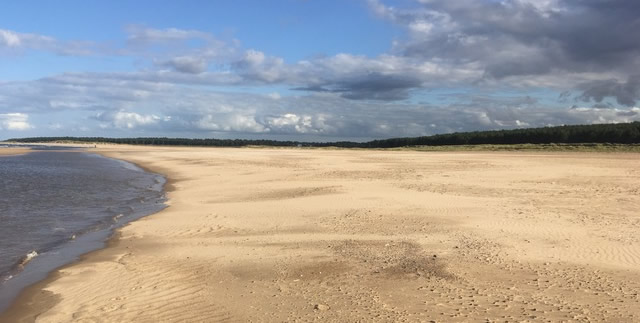
Holkham Beach
Day 2: Wells
The charming seaside town of Wells-next-the-Sea is an ideal spot to access the eastern end of Holkham NNR. We’ll park at the beach car park (parking charges apply) for a walk around The Dell - another bird migration hotspot and a damp area of fen is a good place to find adderstongue fern - and to look over the adjacent saltmarshes. The town has various bakeries and cafés for lunch and we can then walk from the town along the top of the sea wall to a new area of wetland created from former arable fields several years ago. In May the wetland should be full of breeding waterbirds - including avocets - and we might be lucky and find some scarcer spring migrants such as wood sandpiper and garganey.
Day 3: Cley and Kelling
No visit to the North Norfolk Coast is complete without visiting Norfolk Wildlife Trust’s famous Cley Marshes reserve, described by some as the spiritual home of British birding. In May, the scrapes should be full of breeding birds and we might get lucky with bittern or bearded tits in the extensive reedbeds. Sandwich, little and common terns will be feeding offshore. We’ll have lunch at the NWT’s award-winning visitor centre before moving on to Kelling Heath where we will hope to see heathland specialities such as woodlark and, if we’re lucky, turtle dove and adders. If there are any train buffs, the North Norfolk Railway runs through the heath. For non-NWT members, an entry charge is payable at Cley Marshes.
Day 4: Titchwell
The RSPB’s Titchwell Marsh reserve packs a lot of different habitats into a compact area. In recent years the car park has been good place to listen for turtle doves and the fresh marsh holds a large breeding colony of Mediterranean gulls. We should also see marsh harriers and a good selection of wetland birds. The wide sandy beach is good for wading birds and many should be in their full breeding plumage. The reserve has a servery selling a range of hot snacks, sandwiches etc. After lunch we’ll explore the rest of the reserve before heading back to the hotel. Entry to Titchwell is free for RSPB members, otherwise an entrance charge applies.
Hotel
Accommodation will be at the Titchwell Manor Hotel. There are special arrangements for Honeyguiders. For anyone who is interested, please contact the Titchwell Manor Hotel direct on 01485 210221 or info@titchwellmanor.com and mention Honeyguide when booking.
Alternatively Honeyguiders may wish to source self-catering accommodation, for example via airbnb. Anywhere between Brancaster and Wells-next-the-Sea is reasonably central for the sites we will be visiting. If the group is dispersed, instructions on where we will be meeting at the start of each day will be provided in advance.
Lunches: All sites we will be visiting have visitor centres with cafés for lunch, toilet facilities & shop.
Holiday details & how to book
Days/dates: the dates above are four days in the field, Tuesday to Friday. We expect most people to have five nights at the Titchwell Manor Hotel: to arrive on the Monday and leave on Saturday morning. Leaving late on Friday could be possible, for example if you are moving on somewhere else locally.
Hotel cost: depends on the choice of room. Rates of standard ('good') rooms will be emailed, along with the special arrangements for Honeyguiders. Titchwell Manor Hotel can also offer upgrades.
Price: £100 per day fee for your guide (including guide's expenses and conservation contribution).
Deposit: none to Honeyguide. You will be invoiced after the break.
Booking: no booking form is needed. Just keep us informed!
Local travel: in your car, or in Rob's car if you are comfortable with that, or car sharing by mutual consent. No minibus is being booked.
Maximum number (one guide): 6 plus guide. This is to follow the rule-of six Covid-19 protocol back in place from 17 May.
Conservation project
£40 per person will be donated to the RSPB.
Guide
Rob Lucking lives in a small village near Fakenham in North Norfolk and worked for the RSPB for 23 years, latterly as the Area Manager for North Norfolk, Lincolnshire & The Brecks. He has led and co-led wildlife holidays for Honeyguide to Lesvos and Crete and is now a freelance ornithologist, ecologist, horticulturalist and tour guide. Photos on this page by Rob Lucking unless otherwise noted.


